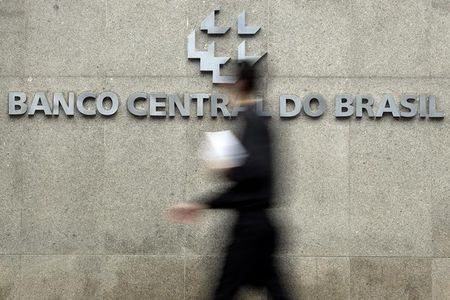By Alonso Soto and Luciana Otoni
BRASILIA (Reuters) - The Brazilian government is not considering new measures to help struggling industries and is instead focussed on shoring up its finances to recover the trust of investors next year, a senior government official told Reuters on Friday.
Newly re-elected President Dilma Rousseff has vowed more fiscal rigor and less tolerance with inflation to rebuild ties with investors damaged by bouts of intervention and selective stimulus to some sectors of the economy.
"This is not the time to be thinking about stimulus measures, we have other priorities," said the official, who is directly involved in economic policy decisions.
"The best thing to do at this moment is to send signals that we will consolidate fiscally in the first year of the next government."
Rousseff's promises to name a new economic team and change policies with the help of business leaders raised expectations for more stimulus to help struggling manufacturers.
The official, who requested anonymity to speak freely, said the government will focus on cutting expenditures to improve the country's primary budget balance, which risks ending the year in deficit for the first time in decades.
The Rousseff administration is also considering extending the maturity of debts that the state development bank BNDES has with the Treasury to reduce the amount of fresh capital the bank needs. The idea, the source said, is for the Treasury to "make the smallest injection possible" this year.
BNDES and the government are in talks about terms of a potential capital injection of up to 30 billion reais (7.36 billion pounds) for the lender.
The official said that the capitalisation could be lower than 20 billion reais, but negotiations are ongoing.
CHANGING EXPECTATIONS
Brazil's government will have to lower its key fiscal savings target for next year to make it more credible and reduce inflation expectations, the official added.
Ratings agencies have threatened to downgrade Brazil's credit rating if the government fails to staunch the fiscal bleeding that has stoked inflation and raised worries about the country's financial health.
"We will have to announce a new target... we will have to adjust expectations primarily with spending cuts," the official said.
Fiscal experts doubt the government will be able to recover its finances next year without increasing taxes on gasoline and other industrial products.
However, the official said the government could improve its fiscal balance next year with a series of microeconomic reforms to unlock investment. He said the government will press hard to simplify and unify taxes, cut red tape and seek approval of a long-delayed mining code.

"These are reforms that we need to implement to jump start activity," said the official. "We need to accelerate growth next year to have a better fiscal result."
(Writing by Alonso Soto; editing by Andrew Hay)
